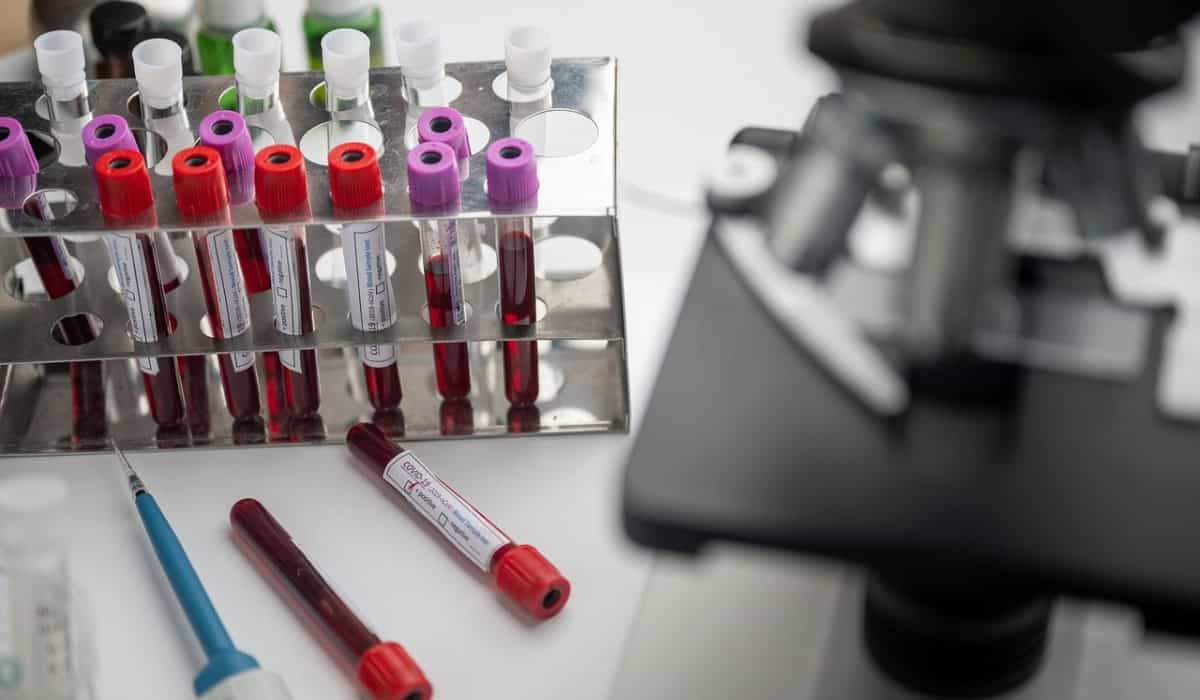Side Effects and Solutions – Understanding and Managing Drug-Induced Alopecia
When you start a new medication, you often think about the benefits it will bring to your health. But sometimes, these same medications can have unexpected side effects on your hair. From thinning to complete hair loss, the impact can be both surprising and distressing. This guide will help you understand why this happens and what you can do about it. Understanding the relationship between medications and hair loss is the first step towards managing and mitigating its effects.
Drug-induced alopecia, or hair loss caused by medication, is a condition that many aren’t aware of until they experience it. It’s important to recognize the signs early and understand that you’re not alone. Many medications can interfere with the natural growth cycle of your hair, leading to thinning or loss. But with the right knowledge and strategies, you can work towards preserving your hair’s health even while taking necessary medications. Let’s explore how certain medications affect your hair and what solutions are available.
Introduction to Drug-Induced Hair Loss
Understanding drug-induced hair loss is crucial. It occurs when medications disrupt the natural growth cycle of your hair, leading to thinning or complete loss. This guide aims to shed light on why this happens and how to address it.
How Common Medications Affect Your Hair
Many medications can lead to two main types of hair loss: telogen effluvium and anagen effluvium. Telogen effluvium pushes hair into the resting phase prematurely, causing more hair to fall out. Anagen effluvium, on the other hand, interrupts the growth phase, leading to widespread hair loss. This can be a shocking side effect when you’re just trying to manage your health by taking medications.
Identifying the Signs of Drug-Induced Alopecia
Noticing more hair on your pillow or in the shower drain can be early signs of drug-induced alopecia. It’s important to pay attention to these changes.
The Role of Medications in Hair Cycle Disruptions
Medications can disrupt the hair growth cycle by causing telogen effluvium, where hair enters the resting phase too soon, or anagen effluvium, halting hair growth entirely. These disruptions can result in noticeable hair loss, a side effect that might not be immediately linked to the medications you’re taking.
Early Signs and Symptoms to Watch For
Early signs of medication-induced hair loss include a noticeable increase in hair shedding, thinning hair, and patches of baldness. Being aware of these symptoms can help you take action early.
Comprehensive List of Medications Known for Affecting Hair
A wide range of medications can contribute to hair loss, including some commonly prescribed for chronic conditions.
Antidepressants and Their Link to Hair Loss
Antidepressants are known to potentially cause hair loss in some individuals. The mechanism isn’t fully understood, but the effect can be distressing.
Blood Pressure Medications: A Surprising Culprit
Some blood pressure medications can lead to hair thinning or loss, a side effect that may catch many by surprise.
Specific Antihypertensives That May Cause Hair Thinning
Certain medications, including blood pressure medications, can lead to hair thinning. Other culprits include birth control pills, acne medications, and treatments for breast cancer, hormone replacement therapy, and Parkinson’s disease. These medications can affect the body’s hormone levels or immune system, contributing to hair loss.
The Impact of Chemotherapy on Hair Health
Chemotherapy is well-known for causing significant hair loss, as it targets rapidly dividing cells, including those responsible for hair growth.
Strategies for Managing Chemotherapy-Induced Alopecia
Options like cooling caps during treatment and gentle hair care can help manage chemotherapy-induced hair loss, preserving hair health as much as possible.
Hormone Therapies and Their Effects on Hair Growth
Hormone therapies can significantly impact hair growth, leading to thinning or loss due to changes in the body’s hormonal balance.
Immunosuppressants and Hair Loss: What You Need to Know
Immunosuppressants, while crucial for managing certain conditions, can also lead to hair loss by affecting the body’s natural hair growth processes.
The Side Effects of Anti-Seizure Medications on Hair
Anti-seizure medications can have side effects on hair health, leading to thinning or loss. If you’re experiencing these symptoms, consulting with your doctor can provide alternatives or solutions to mitigate the impact.
Diagnosing and Understanding Hair Loss Due to Medication
Realizing your hair is thinning or falling out can be distressing. When you think medication might be the cause, it’s crucial to work closely with a healthcare professional. They have the tools and knowledge to help figure out if your medication is the culprit and what steps to take next.
The Process of Diagnosing Drug-Induced Alopecia
To diagnose drug-induced alopecia, your healthcare professional will likely start by reviewing your medical history and the medications you are taking. They may ask about other health concerns that could affect your hair. A physical examination and possibly some tests, like blood work, can help rule out other causes of hair loss and confirm if your medication is to blame.
Frequently Asked Questions About Medication-Related Hair Loss
Many people have questions when they notice hair loss related to medication. It’s a common concern, and getting answers can help you feel more in control.
Can You Reverse Hair Loss From Medication?
Fortunately, hair loss from medication is often reversible. Once the cause, such as telogen effluvium, is identified and you stop taking the medication, your hair typically returns to its normal growing cycle. The resting phase, which caused the hair loss, usually ends, and your hair can start to grow back.
How Long Does Drug-Induced Hair Loss Last?
The duration of drug-induced hair loss varies. It often depends on how long you were taking the drug and your body’s response after stopping it. Generally, the hair starts to regrow within a few months after discontinuing the medication that caused the loss.
Effective Strategies for Managing and Treating Hair Loss
Addressing hair loss effectively requires a combination of approaches, including possibly changing medications, improving your diet, and using targeted treatments.
Diet and Supplements: Nutritional Approaches to Support Hair Growth
Optimizing your nutrition can be a key factor in supporting hair health and encouraging growth. Including a variety of nutrients in your diet can make a big difference.
The Role of Pumpkin Seed Oil in Hair Regrowth
Research has shown that pumpkin seed oil can play a significant role in hair regrowth. It’s believed to block the action of an enzyme that contributes to hair loss, offering a natural way to encourage hair growth.
The Benefits of Minoxidil Topical Solution for Hair Regrowth
Minoxidil topical solution is one of the most well-known treatments for hair loss, including conditions like alopecia areata. It works by stimulating the hair follicles, promoting regrowth, and can be an effective part of a hair care strategy, particularly when dealing with hair loss related to the immune system.
Can You Stop or Reverse the Hair Loss? Exploring Your Options
Understanding the cause of your hair loss is essential for finding effective treatments. There are options available that can help.
Adjusting Medications Under Doctor’s Guidance
If your hair loss is medication-related, adjusting your prescription might be necessary. Under the guidance of a healthcare professional, switching medications or altering your dosage can help your hair return to its normal growing and resting phases, potentially reversing the hair loss.
Comprehensive Hair Care and Treatment Options
Exploring various treatment options is key to managing hair loss. From topical treatments to nutritional supplements, a comprehensive approach can support hair health and regrowth.
Preventive Measures and Lifestyle Adjustments
Taking steps to prevent medication-related hair loss involves understanding the risk factors and making informed choices about your health and treatments.
How to Prevent Hair Loss While on Medication
Preventing hair loss due to medication starts with awareness. Knowing which medications, like chemotherapy drugs, blood thinners, and even oral contraceptives, can affect your hair growth cycle is important. Discussing your family history and any health concerns with a healthcare professional can help. They may recommend a scalp biopsy or other tests to monitor your hair health. In rare cases, some medications increase the risk of serious side effects like blood clots, so staying informed and medically reviewed is crucial. Always consider the impact on your hair when taking the drug and discuss potential preventive measures with your doctor.
Adopting a Hair-Friendly Diet
A diet rich in vitamins and minerals can support your hair’s health. Including foods high in iron, protein, and omega-3 fatty acids can help strengthen your hair and reduce the risk of hair loss. Remember, good nutrition plays a critical role in maintaining healthy hair growth.
The Importance of Regular Scalp Care and Gentle Hair Handling
Maintaining the health of your scalp and being gentle with your hair can make a big difference in preventing further hair loss. This means using a soft touch when washing and brushing your hair. Avoid tight hairstyles that pull on your hair, such as ponytails or braids, which can stress your hair follicles. Also, consider using products designed for sensitive scalps, which can help nourish your scalp and reduce the risk of damage.
When to Consult a Healthcare Professional
If you notice unusual hair loss or thinning, it’s important to talk to a doctor. They can help figure out if your medications are the cause and discuss possible solutions. Remember, not all hair loss is permanent, and early intervention can help manage the condition effectively.
Questions to Ask Your Doctor About Medication and Hair Loss
When talking to your doctor about medication-related hair loss, ask if your current medicines could be causing it. Inquire about the resting phase of hair growth and whether your medication affects this cycle. Understanding the relationship between your medication and the hair cycle can provide insights into potential changes or treatments. Also, discuss any other symptoms you’re experiencing, as they can offer clues about the underlying causes of your hair loss.
Conclusion: Empowering Yourself with Knowledge and Support
Dealing with medication-induced hair loss can be challenging, but with the right information and support, you can navigate this journey more smoothly. Educating yourself about the potential side effects of your medications and exploring treatment options can empower you to take control of your hair health. Remember, you’re not alone in this, and there are resources and professionals ready to help you.
Navigating Through Medication-Induced Hair Challenges
If you’ve stopped taking a medication because of hair loss, it’s crucial to find alternative treatments and support systems. Understanding how different medications affect your hair can help you make informed decisions about your health. Don’t hesitate to seek advice and share your experiences with others who might be going through similar challenges. Together, you can find ways to overcome these obstacles and maintain your well-being.
Building a Support System: From Healthcare Providers to Community Forums
Creating a support network is key when dealing with hair loss due to medication. This includes healthcare providers who understand centrifugal cicatricial alopecia and can offer advice on managing hormonal imbalances. Joining community forums can also be beneficial. Here, you can connect with others experiencing similar issues, share experiences about what works and doesn’t, from using essential oils to avoiding anabolic steroids. The American Academy of Dermatology suggests that a combination of support from medical professionals and learning from the community can provide a robust foundation for managing your condition effectively.





